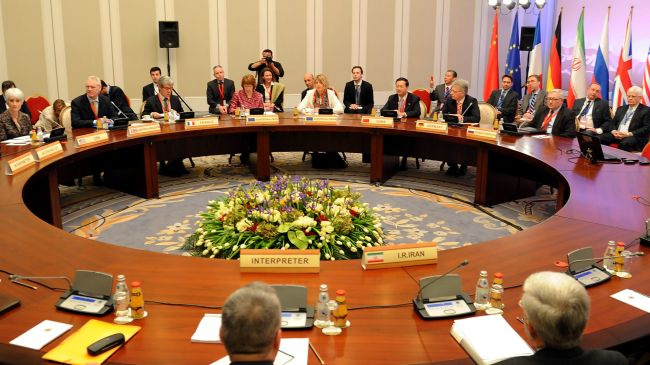“Almaty-2”: Neither Defeat Nor Deadlock

-This round of negotiations was successful because, based on the statement made by Mrs. Ashton, who is in charge of EU foreign policy and a P5+1 negotiator, and contrary to previous negotiations and for the first time in “Almaty-2”, the negotiating delegations of the Islamic Republic of Iran and the P5+1 discussed the details and the roots of differences with regard to Iran’s nuclear program.
-The negotiating delegations of the Islamic Republic of Iran and the P5+1 have, hitherto, negotiated nine times but neither side had ever been willing to talk about the details and the causes.
-The international mediating group aiming to solve Iran’s nuclear problem, called the P5+1, was formed to negotiate with negotiators from the Islamic Republic of Iran about Iran’s nuclear program while the difference between Iran and the West is not about the method, continuation, or dimensions of Iran’s nuclear activities.
-The issues of the nuclear program, human rights or other issues of the Islamic Republic of Iran in the international scene are practically on the sidelines and the main differences between Iran and the West are beyond these matters.
-The security of Israel and support of military and militia groups like Hamas and the Lebanese Hezbollah, which are considered threats against Israel’s security, are the main causes of difference between the Islamic Republic of Iran and the West over Iran’s nuclear program.
-On the other hand, at the end of “Almaty-2” talks, Saeed Jalili, the head of the Islamic Republic of Iran’s negotiating team, mentioned a point which indicated the roots of differences between Iran and the West.
-In a press conference following the “Almaty-2” negotiations, Jalili demanded that the West end its hostile behavior toward Iran, an issue which is the basis of differences between Iran and the West. Nevertheless, the two sides do not trust each other. On one hand, the Islamic Republic of Iran thinks that the objective of the West is not to resolve Iran’s nuclear issue but rather to overthrow the present government in Iran. On the other hand, the West thinks that Iran pursues nuclear weapons in order to increase its threats against Israel.
-On this basis, in all of the previous negotiations between the Islamic Republic of Iran and the P5+1, instead of discussing the effects, both sides talked about the cause which was apparently the main issue but was in fact only a minor one.
-But it seems that both sides have gradually become more experienced and reached the conclusion that they must discuss matters in more detail and, as Mrs. Ashton has stated, the two sides discussed the details for the first time.
-What is certain is that, based on the statement made by Mrs. Ashton, responding to some questions proposed by the Islamic Republic of Iran in “Almaty-2” which mentioned the details of differences between Iran and the West, was beyond the authority of the negotiating teams, thus, the P5+1 demanded that the negotiations end in order to receive orders from the capital cities.
-On this basis, this round of negotiations has not failed, because four rounds of talks between the negotiating teams of Iran and the P5+1 and several bilateral negotiations have indicated the seriousness of both sides to reach a solution to end the differences.
-The western countries demand the suspension of enrichment or closure of some nuclear installations like Fordow or the opening of sensitive military centers like Parchin for inspection by IAEA inspectors, while they do not propose equal offers to Iran.
-The western countries must know that Iran’s nuclear program is, whether right or wrong, linked with national pride and retreating over such an issue is not so easy. Therefore, if they want their demands to be met, they must at least give considerable concessions to Iran so that Iran’s nuclear negotiating team accepts to agree with the demands of the other party.

